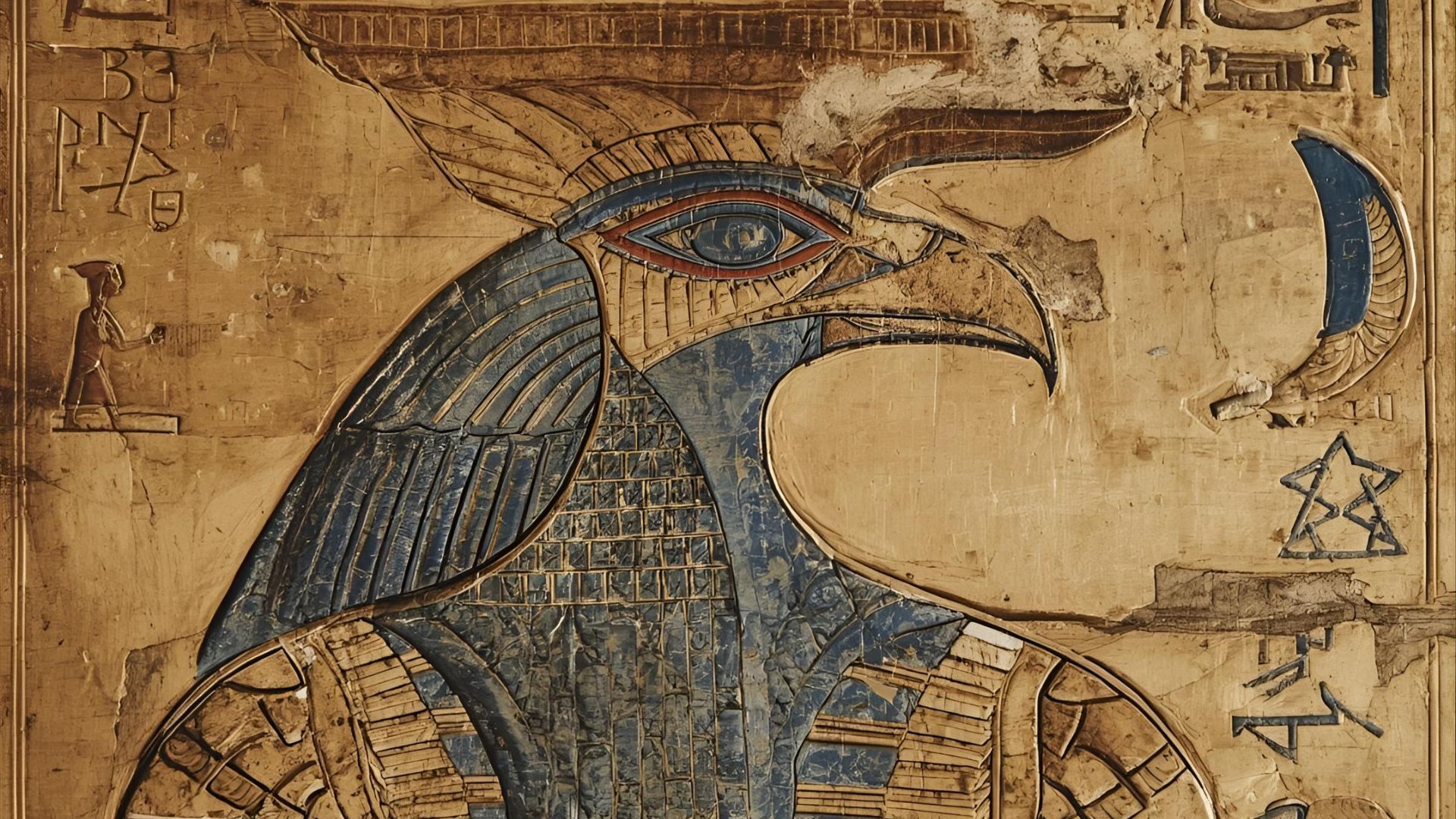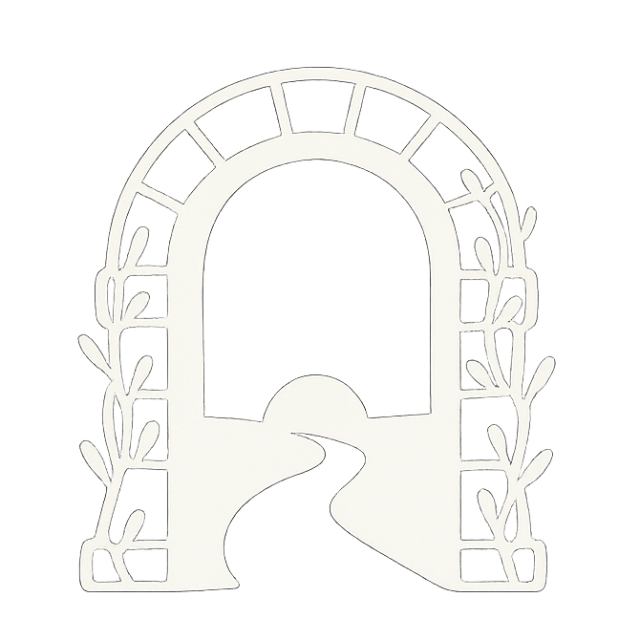Horus: The Egyptian Falcon-Headed God

Horus
Horus was my guide in the spirit realm on my first psilocybin therapy journey. I didn't know him by name at the time, but have come to have much adoration for him. He seems to be appearing for more and more people in journeys and synchronicities. In Magicians of the Gods, Graham Hancock discusses the significance of Horus as one the gods who helped rebuild the new world, post Younger Dryas. Since this seems to be another pivotal point in human evolution, it makes sense that he would be a re-emerging archetype. I also feel we are being called to restore feminine aspects of ourselves and find greater inner balance and harmony, which aligns perfectly with Horus' myth.
Overview
Horus is one of the most significant deities in ancient Egyptian mythology, associated with kingship, the sky, and protection. He is typically depicted as a falcon or a man with the head of a falcon (sometimes a hawk), symbolizing his connection to the heavens. Horus is most known for his role in the myth of Osiris and Isis, where he avenges his father Osiris' murder by defeating Set, the god of chaos. His victory over Set represents the triumph of order over disorder, making Horus a central figure in Egyptian concepts of kingship and cosmic balance.
Symbols and Iconography
-
The Eye of Horus (Wedjat): A powerful symbol of protection, healing, and restoration. According to myth, Horus lost his left eye in battle with Set, but it was restored by Thoth, the god of wisdom. This eye came to symbolize wholeness and health, and it was often used as a protective amulet.
-
The Falcon: As a falcon, Horus soars across the sky, representing divine power and vision. His association with the sun and the sky ties him to higher consciousness, spiritual oversight, and the cycles of day and night.
- The Eyes of Horus as Sun and Moon: Horus's eyes as the sun and moon symbolizes the balance of opposites in the universe—day and night, light and darkness, masculine and feminine, reason and intuition. This duality highlights the idea that both forces are necessary for maintaining cosmic order. Horus teaches that true power and vision come from integrating these contrasting energies, embodying both the rational and intuitive aspects of consciousness. As the child of Isis and Osiris, he represents the balance and integrity that results from divine union.
Archetypal Themes
-
The Hero and Avenger: Horus embodies the hero archetype, especially as the avenger of his father, Osiris. His story is one of perseverance, justice, and the restoration of balance. His battle with Set echoes the archetypal conflict between light and darkness, order and chaos, a theme that resonates across various cultures.
-
The Divine Child: Horus also reflects the archetype of the divine child, born of a divine union (Osiris and Isis) and destined to reclaim his father’s throne. His role as the son who must overcome obstacles to fulfill his destiny ties him to stories of inheritance, lineage, and succession, commonly seen in hero myths.
-
The King and the Protector: As the god of kingship, every Egyptian pharaoh was considered the living embodiment of Horus on earth. He stands for righteous leadership, authority, and divine protection. This aligns him with the "King" archetype, a figure who must embody wisdom, order, and stability for their people.
Light Aspects of Horus
-
Visionary Leader: Horus represents clarity, insight, and the ability to see the bigger picture. His connection to the sky and the falcon's keen vision symbolizes his capacity to guide others with wisdom, foresight, and clear judgment.
-
Protector and Healer: As the protector of Egypt and the guardian of cosmic order, Horus embodies the qualities of a nurturing guardian. His energy is about defending what is just and restoring balance, symbolized by the Eye of Horus, which stands for healing, protection, and wholeness.
-
Courage and Justice: Horus' determination to confront Set and avenge his father symbolizes courage, resilience, and the fight for justice. His story encourages perseverance in the face of adversity and the belief that truth and order will ultimately prevail over chaos.
Shadow Aspects of Horus
-
Rigidity and Over-Control: In his desire to restore order and balance, Horus can become overly rigid or controlling. This shadow aspect may manifest as an unwillingness to compromise or adapt, being so focused on maintaining control that it stifles flexibility and openness.
-
Vengefulness and Obsession with Justice: While his quest to avenge Osiris was noble, Horus' determination to defeat Set can also be seen as vengeful and obsessive. This shadow side may lead to an excessive focus on punishment or retribution, blinding him to the need for compassion or forgiveness.
-
Self-Righteousness: As a symbol of divine kingship, Horus can fall into the trap of self-righteousness or believing that his way is the only right way. This can lead to arrogance, where his sense of purpose and mission overshadows the perspectives and needs of others.
Balancing the Light and Shadow Aspects
Working with Horus' archetypal energy involves embracing his qualities as a visionary leader and protector while remaining mindful of his potential for rigidity and vengefulness. Cultivating self-awareness around these shadow traits can transform them into strengths when they are used consciously and with compassion.
For example:
-
Transforming Vengefulness into Justice: Instead of focusing on punishment, one can channel Horus’ energy into creating fair and balanced solutions that promote healing for all parties involved.
-
Softening Rigidity with Flexibility: When the desire for control arises, one might focus on adopting the falcon's perspective—rising above the immediate issue to see the broader view, which allows for more adaptive and compassionate decision-making.
Understanding both the light and shadow aspects of Horus deepens our engagement with his energy, allowing us to harness his strengths while being conscious of the potential pitfalls of his archetypal power.
Journal Prompts for Integrating Light and Shadow
-
Exploring Inner Vision:
-
What is your deepest vision or calling in life? What guides you, like the sun (the right eye of Horus), illuminating your path with clarity and purpose?
-
When you think of the moon's energy (the left eye of Horus), what hidden aspects of yourself come to light? What intuitive or subconscious messages have you been ignoring or avoiding?
-
-
Confronting Your Shadows:
-
What recurring challenges or conflicts in your life feel like an internal battle with your own version of Set (chaos)? How do these situations invite you to step into your inner warrior and take decisive action?
-
In what areas of your life do you tend to be rigid or overly controlling? What would it look like to soften this approach and allow for more flexibility or forgiveness?
-
-
Balancing Light and Darkness:
-
Where in your life do you feel called to take on the role of a protector or leader, and how can you do so with both compassion and strength?
-
Reflect on a time when you faced adversity or betrayal. What was your initial reaction? How did you eventually find a way to reclaim your power? What would Horus' journey teach you about transforming pain into growth?
-
-
Integrating Masculine and Feminine Energies:
-
How do you express the masculine energy of the sun—your focus, logic, action, and clarity? Where do you notice these qualities supporting your life purpose?
-
How do you express the feminine energy of the moon—your intuition, creativity, emotional depth, and adaptability? How can you deepen your connection to these qualities in your daily life?
-
-
Restoration and Healing:
-
What part of yourself do you feel is "wounded" or in need of restoration? Imagine Thoth's healing energy working to restore this part of you. What steps can you take in your life to support this healing process?
-
Practices to Work with Horus' Energy
-
Meditation with the Eyes of Horus:
-
Visualize yourself as Horus, with one eye as the sun and the other as the moon. Imagine the sun eye shining with clarity and strength, illuminating your path forward. Let the moon eye bring forth your inner wisdom, revealing hidden truths and guiding you with intuition. Allow these two energies to merge, finding balance within yourself.
-
-
Shadow Work Ritual:
-
Light a candle to symbolize the sun (your light aspect) and place a small bowl of water nearby to represent the moon (your shadow aspect). Write down one fear or challenge that represents your shadow (Set) on a piece of paper. Place it in the water to signify your willingness to face and transform this shadow with compassion. As the paper dissolves or gets wet, focus on how you can turn this challenge into a source of strength.
-
-
Invoking the Falcon’s Perspective:
-
When you find yourself in a situation that triggers anger, frustration, or the need for control, take a moment to rise above it like a falcon. Close your eyes, take a deep breath, and visualize looking at the situation from a higher perspective. Ask yourself: What do I see differently from this view? How can I respond from a place of wisdom rather than reactivity?
-
-
Daily Affirmation of Balance:
-
Use this daily affirmation to invite the energy of Horus into your life: "I honor the balance of light and shadow within me. I am guided by both clarity and intuition, embracing my power to see clearly and act wisely."
-
-
Moon and Sun Ritual:
-
During the next full moon, take a moment to connect with your intuitive insights and any emotional truths that come to the surface. Write them down and reflect on what steps you can take to integrate these insights into your life.
-
At sunrise the following morning, set an intention based on your moon reflections, focusing on how you will take action with clarity and courage, using your solar energy to bring your intentions into reality.
-
These prompts and practices are designed to help you embody the wisdom of Horus by embracing both the illuminating light and the transformative darkness within you. This balance is essential for personal growth and for stepping into your true power as a visionary leader in your own life.
Dive Deeper:
- Watch "The Gift", a Turkish show on Netflix
- Read/listen to Magicians of the Gods by Graham Hancock
